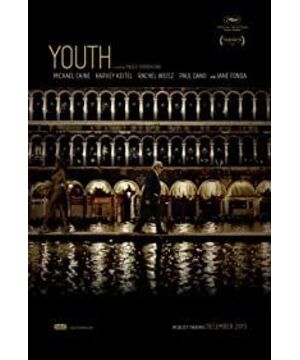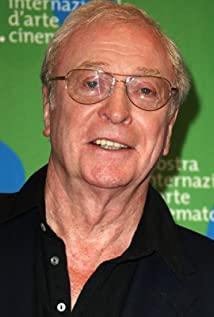A core discussion between two friends lies in the position of "emotion" in artistic creation.
Mick: Your music convey surprising non-word emotions
Fred: Emotions could be over-rated too, Mick.
"Sometimes we just overestimate emotions." The composer Fred's calm and indifferent personality may be reflected in some aspects His attitude towards life and artistic creation. Among the snow-capped mountains in Switzerland, in the light shot through the scattered snow particles, Fred said frankly on the somewhat unreal wooden observation deck, "Ultimately, I never like life well enough."
But Fred is definitely not a division of emotions. Oppose the duality of reason and stand on the side of reason. The purity of music as a non-representational art gave him a solid foundation: "Music is the only thing I understand. Because you don't need words or experience to understand it."
Acknowledging the musicality of music as the foundation, Fred can distinguish daily life from artistic creation, because the purity of art makes it inevitably unable to bear all of life-it is even separated from life; the passion for art also makes him The love of life itself is not strong. Between routine and art, a clear boundary is divided. But Mick does not recognize this pure "art" and the role of this pureness in assuming the meaning of his life. In his view, life and art are both based on the same foundation-emotion.
"Not me. I don't 'do routine'… You know what I'm going to do, Fred? I'm going to start, um, another film. You said emotions were over-rated——that's bullshit. Emotions is all we've got." He said excitedly, then walked to the balcony tremblingly, boarded the guardrail, and jumped off.
Emotions, passions, emotions... once occupied a central position in the art of the 20th century. A related but subtle opposite is the proposal of "absolute music" at the end of the 19th century. In "On the Beauty of Music", Hanslick refuted the prevailing romantic view of music as the "art of expressing emotions" at that time, and insisted that music has no people and purposes outside of itself, including expressing emotions; "Music" The content of "is the form of movement of music". It has no other reference, but only because it is the "law of nature" set by nature into the spirit of man. Fred in recuperation sits on a rock in the Swiss mountains and directs the herd. The cow bells of different pitches are combined into various rhythms and harmony under his command. Behind this romantic setting is the belief that a musician does not only create in personal emotions, but evokes other people’s emotions through empathy; he is more likely to respond to the “laws of nature” given to people by nature. The ecstasy of creation was gained from the discovery.
What's interesting is that in terms of the independence and self-consciousness of art, under the slogan "All art should tend to music", the "emotion" rejected by Hanslick has been brought back to the core position of modern art. On the one hand, music is completely non-representative, and on the other hand, it can best express a kind of original vitality and passion. Nietzsche regarded the spirit of Bacchus as the source of music. Music appears in a completely invisible form, and its non-representation is because it is a direct presentation of the more fundamental will of life. In this way, the "laws of nature" seem to be indistinguishable from the original emotions. Continuing this overall concept of emotion, Croce directly corresponds to the form of beauty and the mind with intuition, and "intuition can only come from emotion": in the original nature of the mind, emotion is by no means outside of reason and knowledge. It's a holistic whole. Mick believes that "we have nothing but emotions." In terms of aesthetics, "people are either good-looking or ugly" intuitively. For "I have only read two books in a lifetime and one is an autobiography written by a gunman", "I am ungrateful." The esteemed actress Brenda, who has a very high intuition and a true feeling for life itself, shows this attitude. What Mick admits is an intuition about life as a whole, and it is directly and only expressed in human emotions.
The disagreement between Fred and Mick in artistic concepts is directly reflected in their lives. Mick's world is made up of emotions. Filming is the only way for him to grasp, study, and present these emotions. So he has to shoot, shoot continuously, which in itself is the whole of his life. This also explains to a certain extent why he chose film as his art form—even if there are non-narrative works, it still has to directly touch and ignite those emotions in the plot, as a person to his existence. The most sincere emotions. When he is no longer able to shoot, when his "career" is no longer, his life cannot go on either. This may also echo Rothko's suicide. And Fred, surprisingly, when he discovered his wife’s death, he agreed to direct the Queen’s "Simple Movement" created by his wife as a singer—this was what he resolutely resisted before: "As long as I live One day, she (Fred's wife) was the only singer of these tunes." At the end of the film, Fred stood in the Royal Concert Hall, directing the tune with a calm expression, even though his heart was full of waves. Facing the loss of the cherished ones, the different attitudes of the two artists have a certain ambiguous symbolic meaning: perhaps emotions and artistic creations centered on emotions cannot truly survive in the history of art; and pure art itself, No matter how the artist and the world change, they will shine at the pinnacle of human civilization. ——Of course, behind this there is still a problem that is difficult to clarify: For those who truly pursue the emotions as the unity of life, perhaps art does not need to exist as an external object — the artist’s own life and life may be talented. It is the true artistic spirit.
View more about Youth reviews











